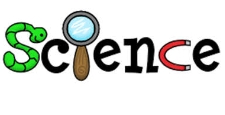Science
Science is taught from Foundation Stage through to Year 6.
At Primrose Hill Primary School, we believe science should stimulate and excites children’s curiosity about phenomena and events in the world around them. It should also satisfy their curiosity for knowledge. Science links directly with practical experience with ideas, it engages learners at many levels. This will lead to a better understanding of ourselves and the world. It provides opportunities to appreciate scientific facts and concepts and to experience scientific discovery.
Science at Primrose Hill Primary School is about developing children’s ideas and ways of working that enable us to make sense in the world in which they live through investigation, as well as using and applying process skills.
Early Years
Children in Foundation stage will be introduced to science through the Early Years Foundation Stage (EYFS) Curriculum Guidance. The Early Learning
Goals (ELGs) for ‘Understanding of the World’ forms the foundation for later work in Science, Design and Technology, History, Geography and ICT.
Wherever possible the children are provided with activities based on firsthand experience that encourage exploration, observation, problem solving, prediction, critical thinking, decision making and discussion. We provide an environment with a wide range of indoor and outdoor experiences that stimulate their interest and curiosity.
Children are provided with a broad range of opportunities and experiences in science, enabling them to work towards their Early Learning Goals.
Children develop their understanding of the world around them on a daily basis, using their senses to explore and learn about objects and materials. Children are given holistic learning experiences, incorporating elements of science in their everyday activities.
KS1
Children observe, explore and ask questions about living things, materials and physical phenomena. They begin to work together to collect evidence to help them answer questions and to link this to simple scientific ideas. They begin to evaluate evidence and consider whether tests or comparisons are preparing for the future in a caring environment.
They use reference materials including ICT to find out more about scientific ideas. They share ideas and communicate them using scientific language, drawings, charts and tables with the help of ICT where appropriate.
The KS1 curriculum follows the National Curriculum, ensuring all areas of the Programme of Study are covered across both Years 1 and 2. Children further develop their understanding of the world around them which they have gained in the Foundation Stage. Children are able to observe, explore and ask questions about living things, materials and physical phenomena.
Children begin to work collaboratively with others, enabling them to develop their scientific knowledge and understanding and to link scientific concepts. Children communicate ideas orally using taught scientific language and begin to develop written methods for communicating their ideas (to include drawings, diagrams, use of ICT, tables and charts).
KS2
Children learn about a wider range of living things, materials and physical phenomena. They make links between ideas and explain things using simple models and theories. They apply their knowledge and understanding of scientific ideas to familiar phenomena, everyday things and their personal health. They think about the effects of scientific and technological developments on the environment and in other contexts. They carry out more systematic investigations, working on their own and with others. They use a range of reference sources including ICT in their work. They talk about their work and its significances, using a wide range of scientific language, conventional diagrams, charts, graphs and ICT to communicate their ideas.
The KS2 curriculum follows the National Curriculum, ensuring all areas of the Programme of Study are covered across Years 3, 4, 5 and 6. Children learn, explore and ask questions about a wider range of living things, materials and physical phenomena. Children think about the impact of scientific developments and technologies on themselves and the world around them.
Children are encouraged to develop an independent approach to their science learning, through asking questions, suggesting improvements to their work and supporting each other towards achieving a heightened understanding of scientific concepts.
Science is promoted across KS2 with children being given the opportunity to plan, carry out and evaluate experiments. Children are encouraged to develop their own methods for presenting their ideas (to include drawings, diagrams, use of ICT, tables and charts.)
Within school we are very lucky to have:
- a pond
- an orchard
- a growing area
- a bug hotel
- many other outdoor habitats and spaces within our school grounds to help support and develop our Science offer.



